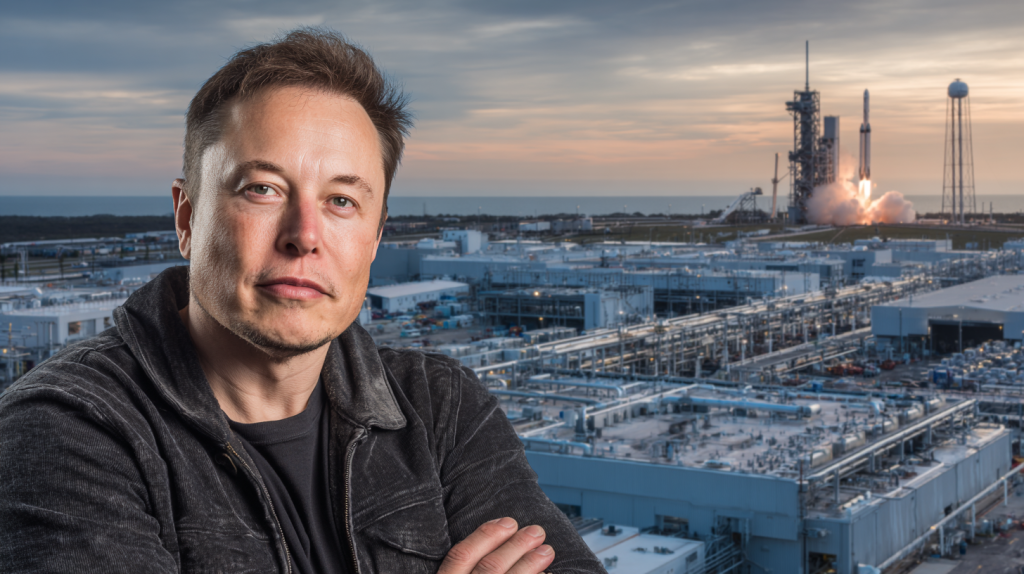
Table of Contents
Elon Musk $500 Billion Net Worth Becomes Reality
Elon Musk $500 billion net worth became reality this week, making him the first person in history to hit the milestone. According to Reuters, Tesla’s stock rebound and swelling valuations of SpaceX and xAI pushed him past the half-trillion mark. The figure is staggering not just in personal terms but in political and institutional ones: Musk’s wealth now rivals the GDP of entire nations.
The milestone forces a bigger debate about corporate power. What happens when one person commands economic resources on a scale larger than many governments? And how do democracies contend with that kind of private influence?
Elon Musk $500 Billion Net Worth and Market Fragility
Tesla accounts for the largest share of Musk’s fortune. After a rough start to 2025, its stock gained 14 percent this year, recovering faith in the company’s long-term story of AI, robotics, and EV dominance. One three-percent bump this week alone added more than $6 billion to Musk’s fortune.
But Tesla isn’t the entire story. SpaceX, valued by private tender deals at nearly $400 billion, carves out another massive piece of his wealth. Musk’s merger of xAI with X (the platform formerly known as Twitter) values that venture at well over $100 billion. Together, these three holdings lock Musk into a half-trillion-dollar balance sheet that sits at the heart of global capital markets.
Still, the wealth is fragile. Tesla’s stock is notoriously volatile, swinging billions in a single day. SpaceX valuations rely on private sales — thin markets that can shift quickly. His xAI stake is even more speculative. The number may be real today, but it could easily be shaved by $100 billion tomorrow.
Historical Parallels: From Rockefeller to Musk
History has seen billionaire titans before — John D. Rockefeller during the oil boom, Andrew Carnegie in steel, Jeff Bezos in e‑commerce. Yet even Rockefeller’s inflation-adjusted dominance hovered around $400 billion at peak. Musk’s half‑trillion puts him in a category of his own.
These parallels matter because extreme wealth concentration has historically provoked reform. The Gilded Age produced antitrust laws. The New Deal emerged after monopoly power worsened economic collapse. The current era — call it the Digital Gilded Age — may require similar democratic corrections. Musk’s fortune reminds us that technology monopolies can centralize wealth as dramatically as oil and railroads once did.
Global Implications of Elon Musk $500 Billion Net Worth
The global implications of Elon Musk $500 billion net worth cut deeper than balance sheets. Musk doesn’t just own car factories and rockets; he controls communications and infrastructure with political consequences.
Starlink satellites, run by SpaceX, now provide wartime internet coverage across Ukraine. In multiple conflicts, governments have treated Musk’s company like a de facto state partner. That raises unease: should decisions about coverage in combat zones rest in the hands of one individual, accountable to shareholders rather than voters?
And with xAI, Musk is entering the high-stakes race for general-purpose AI models. If his companies dictate how AI is deployed, the kinds of bias allowed into those systems, and the terms of their regulation, then his private decisions ripple across democracies.
Worker and Investor Experiences vs. Musk’s Fortune
For Tesla workers on production lines in Fremont, Shanghai, or Berlin, the swings in stock affect paychecks and retirement funds differently than they do Musk. Stock-linked bonuses that shrink in a down quarter can simply erase compensation. Retail investors who piled into Tesla during hype cycles experience gut-wrenching volatility that Musk can shrug off with a half-trillion-dollar cushion.
Meanwhile, Tesla’s board has floated a new compensation arrangement for Musk worth up to a trillion dollars if he meets “Mars-shot” goals like hitting an $8.5 trillion company value. This isn’t just another aggressive payday. It signals acceptance that no executive should merely run a company — one may dominate global industries, with state‑like leverage.
Democratic Stakes of Wealth Concentration
The half-trillion mark should be read as a democratic warning flare. Wealth on this scale doesn’t just sit in banks, it warps institutions. It buys lobbying power, regulatory capture, and policy insulation. When one man’s fortune equals the GDP of Denmark, the lines between private owner and sovereign risk collapse.
Progressives argue this moment demands new guardrails:
- Transparency: Private market valuations, especially for firms controlling infrastructure, should require public disclosure of trading activity.
- Antitrust Modernization: Competition policy must assess not only consumer prices but also how cross-sector holdings give one person excessive systemic control.
- Compensation Reform: Pay packages worth hundreds of billions destabilize governance — and should be recalibrated to long‑term societal value, not only shareholder returns.
This isn’t happening in isolation. As we argued in our reporting on the Saudi-backed $55 billion bid to take Electronic Arts private, concentrated capital is testing the boundaries of regulatory guardrails across industries. Musk’s $500 billion milestone sits inside the same global pattern: private fortunes strong-arming public institutions.
Why Elon Musk $500 Billion Net Worth Is a Sovereignty Question
This is no longer about bragging rights over Bernard Arnault or Jeff Bezos. This is about sovereignty. When a private actor controls satellite networks, speech platforms, and the future of AI in ways that reshape wars and markets, governments lose leverage.
Half‑trillionaire today, trillionaire tomorrow: Musk’s fortune may very well climb higher by 2033, if Tesla’s new pay package milestones hit. But the real issue is whether democratic institutions can adapt quickly enough to reassert guardrails before platforms and fortunes reach a tipping point that makes them untouchable.
Quick Recap
Parallels to other concentrated capital cases highlight systemic fragility.
Elon Musk $500 billion net worth milestone hit October 2025.
Driven by Tesla rebound, SpaceX private valuation, and xAI merger.
Fragile wealth, but still unmatched in scale.
Historical echo of prior monopolists — Rockefeller, Carnegie.
Global implications: satellites, AI, war zones.
Policy risks: inequality, democratic erosion, regulatory capture.